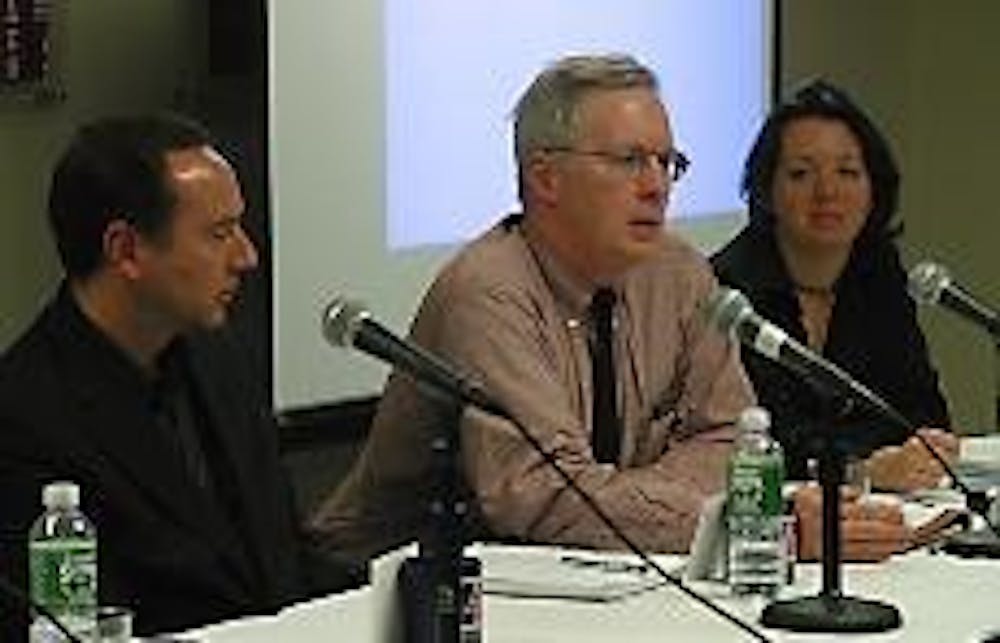It is essential that today's archaeologists recognize the rights of indigenous people, according to Dorothy Lippert, supervisory archaeologist at the National Museum of Natural History.
Lippert spoke along with other experts on the issues of repatriation and cultural resources at a panel hosted by Student Advocates for Native Communities Wednesday night in the Butler Board Room.
The presentation focused on the need for communication and cooperation between indigenous people and the scientists that study their lands and the structures and objects found on it.
Being both Native American and an archaeologist, Lippert stressed the importance of indigenous archaeology, which she considers a method of relating to human beings who created the artifacts that are being unearthed. She said it is important for archaeologists to respect how natives of a land sense a connection to the remains of the past.
John Beaver, cultural protocols program specialist at the Museum of the American Indian, said humans must learn as much about native cultures as possible.
"It shouldn't be the archaeologists on one side and the native communities on the other," Beaver said.
Jim Pepper Henry, assistant director of community services for the National Museum of the American Indian, said he believes repatriation is an issue of civil rights. He works to return artifacts to their native people, such as when he worked to help return an authentic totem pole to Cape Fox, Alaska.
Henry said native people do not just value the object itself, but all other intangible qualities, such as songs and ceremonies, used with the item.
Archaeologists must not view remains of cultures as "specimens" or "things," but as sacred objects that first and foremost belong to their native tribes. These objects must be preserved because they have been created in a sacred manner, Lippert said.
Frank McManaman, author, director of archaeolgy at the Department of the Interior, said sacred objects can often be destroyed as a result of repatriation.
However, Stuart Feidel, author, professional archaeologist and head of an environmental consulting firm, argues that it is hard to choose who has the right to decide how artifacts are disposed of or preserved.
Lippert said the people who have ownership over remains of the past "are our ancestors who have waited thousands of years to tell us their stories."
Katie Dodge, a freshman in the School of Public Affairs, said she found the differences in opinions among the panelists especially interesting.
"It seemed like some of the anthropologists are completely against the destruction of artifacts while others think that it is alright to bury remains of the past," Dodge said.





